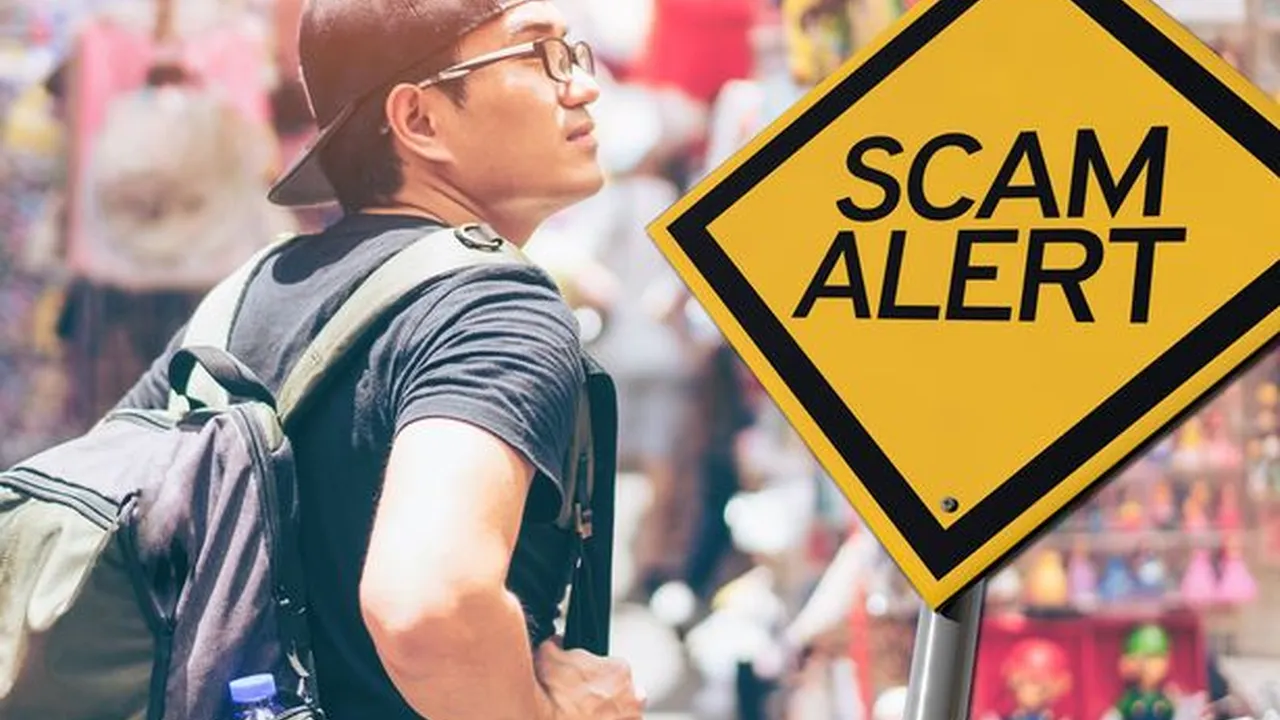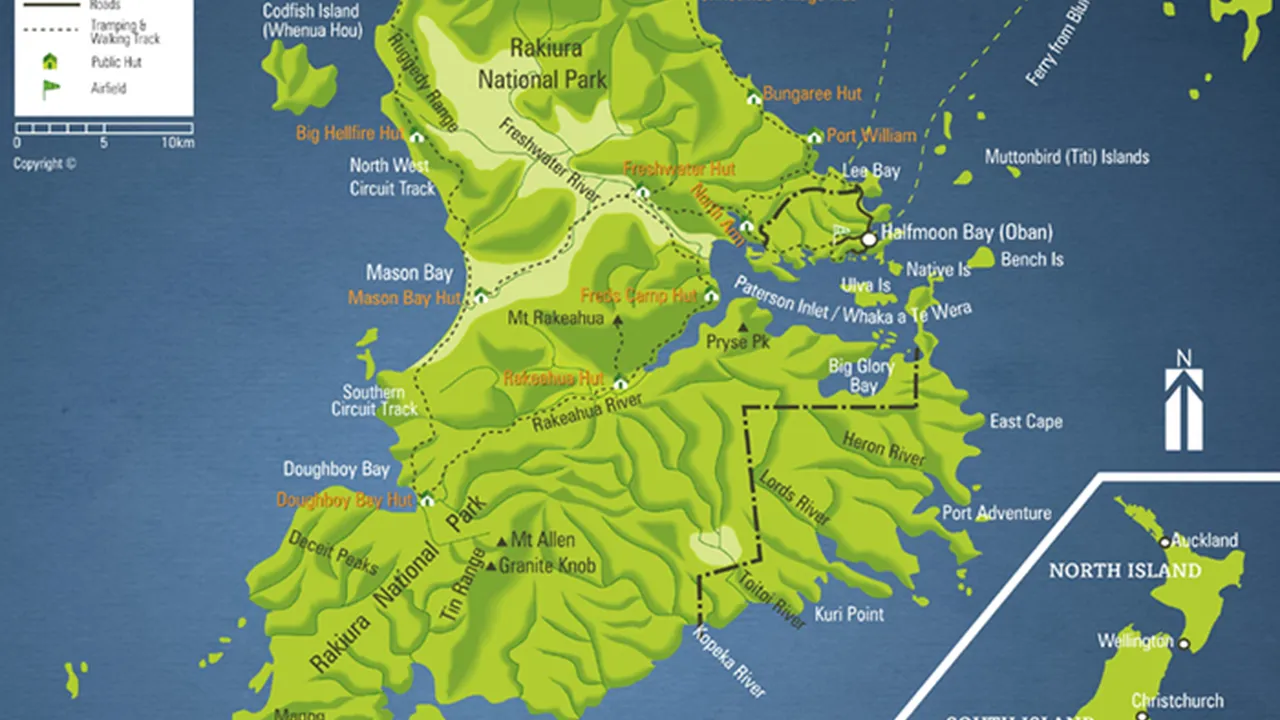Common Scams to Avoid in New Zealand
Sample meta description.

Introduction: Staying Safe from Scams While Traveling New Zealand
Hey there, fellow adventurers! So, you're planning a trip to New Zealand? Awesome choice! The Land of the Long White Cloud is packed with stunning scenery, thrilling activities, and friendly locals. But just like anywhere else in the world, there are a few bad apples who might try to take advantage of unsuspecting tourists. Don't worry, though! With a little awareness and some common sense, you can easily avoid most scams and have an unforgettable (in a good way!) trip. This guide is designed to help you, American traveler, navigate the potential pitfalls and keep your wallet and your peace of mind intact. We'll cover the most common scams, offer tips on how to spot them, and even recommend some handy products to make your journey smoother and safer. Let's dive in!
Rental Car Scams: Avoiding Hidden Fees and Damage Claims
Renting a car is practically essential for exploring New Zealand, but it's also a prime area for scams. Here's what to watch out for:
The "Pre-Existing Damage" Racket
This is a classic. You pick up your rental car, and it looks fine at first glance. But when you return it, the rental company claims you caused damage that was already there. They might even have photos to "prove" it. To avoid this:
- Thoroughly inspect the car before driving off the lot. Take photos and videos of any existing scratches, dents, or other imperfections. Pay close attention to the undercarriage, windshield, and tires.
- Document everything. Get the rental company to sign off on your documentation of pre-existing damage.
- Consider taking out full insurance. It might seem expensive, but it can save you a lot of hassle in the long run.
Hidden Fees and Charges
Read the fine print! Rental companies are notorious for adding on extra fees that weren't initially disclosed. These can include:
- Airport surcharges
- Road user charges (RUC) (especially for diesel vehicles)
- Cleaning fees (even if you return the car clean)
- Late return fees (even if you're just a few minutes late)
To avoid these hidden fees:
- Compare prices carefully. Don't just look at the headline rate. Check the total cost, including all taxes and fees.
- Ask about all potential charges upfront. Get everything in writing.
- Return the car on time and in good condition.
Product Recommendation: Garmin Dash Cam Mini 2
A dash cam can be a lifesaver in case of an accident or a dispute with the rental company. The Garmin Dash Cam Mini 2 is small, discreet, and easy to use. It records high-quality video and audio, providing valuable evidence in case of any incidents. It retails for around $130 USD on Amazon.
Usage Scenario: Mount it on your windshield before you even leave the rental car lot. It will automatically record your entire journey, capturing any potential damage or incidents.
Comparison: Compared to other dash cams, the Garmin Dash Cam Mini 2 is particularly appealing due to its small size and ease of use. More expensive models might offer GPS tracking or lane departure warnings, but for basic protection against rental car scams, the Mini 2 is perfect.
Accommodation Scams: Fake Listings and Bait-and-Switch Tactics
Finding the perfect place to stay is a crucial part of any vacation. Unfortunately, accommodation scams are becoming increasingly common. Here's how to avoid them:
Fake Listings on Airbnb and Other Platforms
Scammers create fake listings for properties that don't exist or aren't as advertised. They often use stolen photos and offer unbelievably low prices to lure you in. Once you've paid, they disappear.
To avoid fake listings:
- Book through reputable platforms like Airbnb, Booking.com, or Expedia. These platforms have security measures in place to protect you.
- Check the reviews carefully. Look for consistent positive reviews from multiple users. Be wary of listings with no reviews or only a few generic reviews.
- Verify the host's identity. Look for verified profiles with photos and contact information.
- Communicate with the host through the platform's messaging system. Don't communicate via email or phone outside the platform.
- Pay through the platform's secure payment system. Never pay by bank transfer, Western Union, or other unsecured methods.
- Be wary of deals that seem too good to be true. If the price is significantly lower than similar properties in the area, it's probably a scam.
Bait-and-Switch
You book a beautiful apartment online, but when you arrive, you're told it's "unavailable" due to "plumbing issues" or some other excuse. You're then offered a much smaller, less desirable room at the same price.
To avoid bait-and-switch:
- Read the cancellation policy carefully. Make sure you can cancel your booking without penalty if the property is not as advertised.
- Take photos and videos of the property upon arrival. If it's not as described, document the discrepancies.
- Contact the booking platform immediately. They may be able to help you find alternative accommodation or get a refund.
- Leave a negative review. Warn other travelers about your experience.
Product Recommendation: Portable Door Lock
Even if your accommodation is legitimate, it's always a good idea to enhance your security. A portable door lock adds an extra layer of protection, preventing unauthorized access to your room. The Addalock is a popular and well-reviewed model, selling for around $30 USD on Amazon.
Usage Scenario: Install the portable door lock on your hotel or Airbnb door at night or whenever you're inside. It provides an extra barrier against intruders.
Comparison: Unlike traditional door chains, a portable door lock can withstand more force and is difficult to bypass. It's a simple and affordable way to increase your peace of mind.
Tour and Activity Scams: Overpriced Deals and Unlicensed Operators
New Zealand is a paradise for adventure seekers, but be careful when booking tours and activities. Here's how to avoid getting ripped off:
Overpriced Deals
Some tour operators inflate their prices, knowing that tourists are often willing to pay more. They might also try to upsell you on unnecessary extras.
To avoid overpriced deals:
- Compare prices from multiple tour operators. Get quotes from at least three different companies before making a decision.
- Read reviews online. See what other travelers have to say about the tour operator's prices and services.
- Negotiate the price. Don't be afraid to haggle, especially if you're booking a group tour.
- Be wary of "limited-time offers" and other pressure tactics. These are often used to trick you into making a hasty decision.
Unlicensed Operators
Some tour operators operate without the necessary licenses and permits. This means they may not be properly insured or trained, putting your safety at risk.
To avoid unlicensed operators:
- Check the tour operator's credentials. Make sure they have the necessary licenses and permits to operate in New Zealand.
- Ask about their safety procedures. Find out what precautions they take to ensure your safety.
- Read the fine print. Make sure you understand the terms and conditions of the tour, including the cancellation policy and liability waivers.
Product Recommendation: Portable Power Bank
When you're out on a tour, you'll want to keep your phone charged so you can take photos, use maps, and contact help if needed. A portable power bank is a must-have accessory. The Anker PowerCore 10000 is a compact and reliable option, costing around $25 USD on Amazon.
Usage Scenario: Keep the power bank in your backpack or pocket and use it to charge your phone on the go. It can provide multiple charges for most smartphones.
Comparison: While larger power banks offer more capacity, the Anker PowerCore 10000 strikes a good balance between size, weight, and charging power.
ATM and Credit Card Scams: Protecting Your Financial Information
ATMs and credit cards are convenient ways to access your money while traveling, but they're also vulnerable to scams. Here's how to protect your financial information:
ATM Skimming
Scammers install devices on ATMs that steal your card information and PIN when you use the machine.
To avoid ATM skimming:
- Use ATMs at reputable banks. Avoid ATMs in isolated or poorly lit areas.
- Inspect the ATM carefully. Look for any signs of tampering, such as loose or damaged parts.
- Cover the keypad when entering your PIN. This prevents hidden cameras from recording your PIN.
- Monitor your bank statements regularly. Report any suspicious transactions immediately.
Credit Card Fraud
Scammers can steal your credit card information in various ways, such as by using fake websites, phishing emails, or point-of-sale devices.
To avoid credit card fraud:
- Use secure websites with HTTPS encryption. Look for the padlock icon in the address bar.
- Be wary of phishing emails and text messages. Never click on links or provide personal information in response to unsolicited messages.
- Protect your credit card information when making purchases. Don't let your card out of your sight, and always check the amount on the receipt before signing.
- Use a credit card with fraud protection. Many credit cards offer fraud protection, which can reimburse you for unauthorized charges.
Product Recommendation: RFID Blocking Wallet
An RFID blocking wallet protects your credit cards from being scanned by electronic pickpockets. The TRAVANDO "Rio" Wallet is a stylish and functional option, selling for around $20 USD on Amazon.
Usage Scenario: Keep your credit cards and passport in the RFID blocking wallet to prevent thieves from stealing your information electronically.
Comparison: While you can use RFID blocking sleeves for individual cards, a wallet provides a more convenient and organized solution.
Internet and Wi-Fi Scams: Staying Safe Online
Staying connected online is essential for many travelers, but public Wi-Fi networks can be risky. Here's how to stay safe online:
Unsecured Wi-Fi Networks
Public Wi-Fi networks are often unsecured, meaning your data can be intercepted by hackers.
To avoid unsecured Wi-Fi networks:
- Use a virtual private network (VPN). A VPN encrypts your internet traffic, protecting your data from hackers.
- Avoid accessing sensitive information on public Wi-Fi networks. Don't log in to your bank account or other sensitive websites.
- Use a strong password for your Wi-Fi network. Change your password regularly.
- Turn off Wi-Fi when you're not using it. This prevents your device from automatically connecting to unsecured networks.
Phishing Scams
Scammers use phishing emails and websites to trick you into providing your personal information.
To avoid phishing scams:
- Be wary of unsolicited emails and websites. Don't click on links or provide personal information in response to unsolicited messages.
- Check the sender's email address carefully. Scammers often use fake email addresses that look similar to legitimate addresses.
- Look for spelling and grammar errors. Phishing emails often contain spelling and grammar errors.
- Verify the website's authenticity. Check the website's domain name and security certificate.
Product Recommendation: NordVPN
A VPN is essential for protecting your data when using public Wi-Fi. NordVPN is a popular and reliable option with servers in New Zealand and around the world. Subscriptions start at around $4 per month.
Usage Scenario: Connect to NordVPN whenever you're using public Wi-Fi to encrypt your internet traffic and protect your data from hackers.
Comparison: While there are many free VPNs available, they often have slower speeds and less reliable security. A paid VPN like NordVPN provides a more secure and reliable experience.
General Tips for Avoiding Scams in New Zealand
Here are some general tips to help you avoid scams in New Zealand:
- Be aware of your surroundings. Pay attention to what's going on around you and be wary of anyone who approaches you unexpectedly.
- Trust your instincts. If something feels wrong, it probably is.
- Don't be afraid to say no. If someone is pressuring you to do something you're not comfortable with, don't be afraid to say no.
- Report any suspicious activity to the police. If you think you've been scammed, report it to the police immediately.
- Inform your bank and credit card companies. If your credit card or bank account has been compromised, inform your bank and credit card companies immediately.
- Keep copies of your important documents. Make copies of your passport, driver's license, and other important documents and keep them in a safe place.
- Purchase travel insurance. Travel insurance can protect you against financial losses due to theft, illness, or other unexpected events.
By following these tips, you can significantly reduce your risk of being scammed in New Zealand and have a safe and enjoyable trip. Happy travels!
:max_bytes(150000):strip_icc()/277019-baked-pork-chops-with-cream-of-mushroom-soup-DDMFS-beauty-4x3-BG-7505-5762b731cf30447d9cbbbbbf387beafa.jpg)






